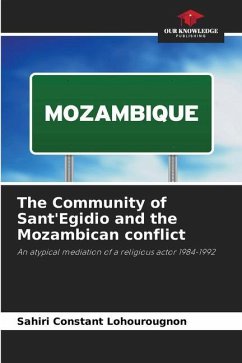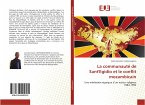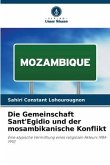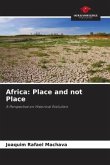Southern Africa has been marked by numerous conflicts from colonization to the post-independence period. Mozambique, one of the countries in this area, is no exception to this reality. Indeed, October 4, 1992, was the most important day in the history of Mozambique, as on this date the General Agreement of Peace of Mozambique was signed in Rome. It put an end to a civil war that had been bloodying the country for more than fifteen years, leaving a million dead. This agreement was obtained thanks to the mediation work of the Community of Sant'Egidio, after more than twelve years of presence in the country and twenty-seven months of negotiations between FRELIMO and RENAMO. What prompted the Community of Sant'Egidio to become involved in the Mozambican conflict? What methods did it use to bring peace to Mozambique? What factors contributed to the success of its intervention? These are the questions to which this book provides answers. It is a study of the first African mediation of the Community of Sant'Egidio. It exposes the set of intertwined strategies that contributed to the production of peace in Mozambique.
Bitte wählen Sie Ihr Anliegen aus.
Rechnungen
Retourenschein anfordern
Bestellstatus
Storno








